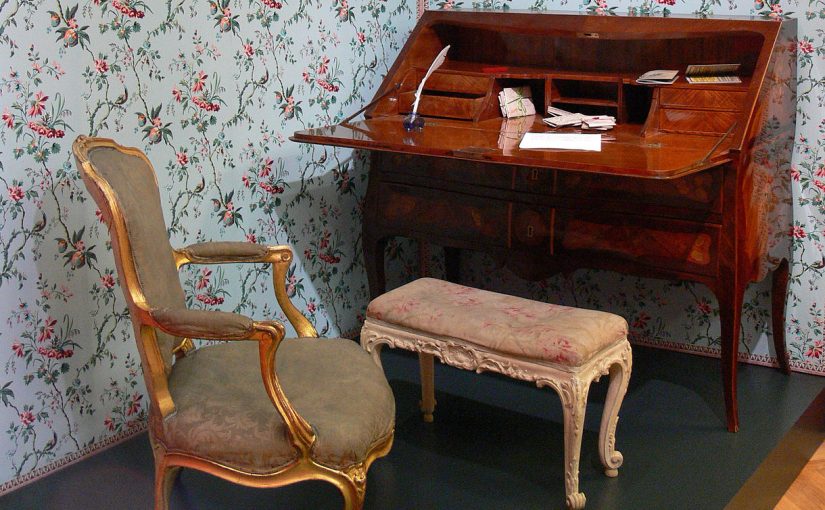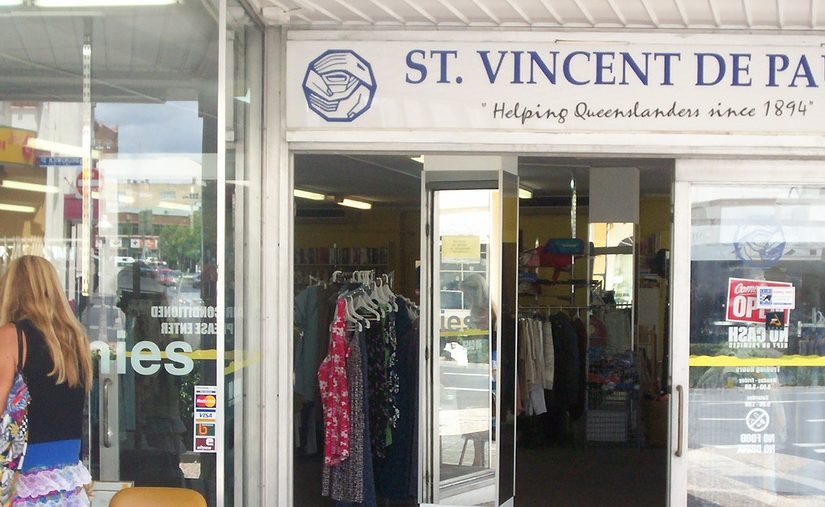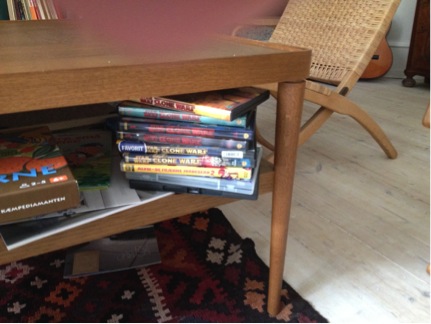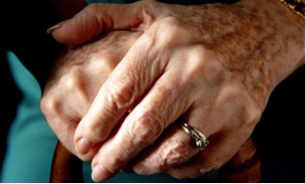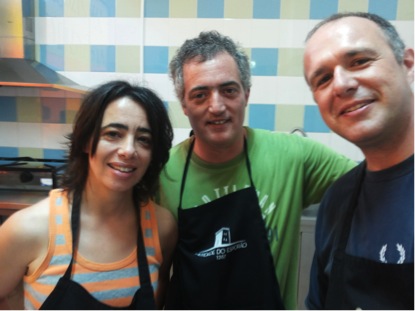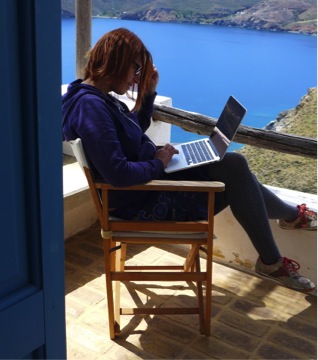This is a story about an old man, his children and some antiquities. When his parents died in the 1980s, the old man inherited a set of antique furniture that had been in the family since the 1850s. The old man was now in his 80s and had started planning for the days when he would no longer be around. He wanted the antique furniture to pass on to one of his three children to “keep it in the family” as he put it. For some reason he wanted this to happen rather swiftly.
He approached his children about this, but it soon became clear that none of the three children had room for the furniture in their houses. He then asked the oldest son if he could arrange for the furniture to be bought by a local museum, so that it at least was possible for the family to see it there. The museum already had a lot of antique furniture, and was not willing to take responsibility for more.
When asked if he could not just sell the old stuff, the old man made it very clear that he did not want it to leave the family. No solution was found, and the furniture is still in the house of the old man.
The story might not be a good example of give&take practice, but I think it illustrates the complications of give&take in the family where tradition, emotions, and complicated relations often makes it hard to see who is giving and who is taking.
(photo: Wikipedia)
Author: sbut
Changing Roles
It used to be the case that you could never find Vera at home. She was always out helping ‘older people’, even though she was in her 70s.
Monday was ‘Meals on Wheels’ day, her rostered day to help prepare and then deliver meals. Tuesday she took communion from the local church to bed-confined Catholics living in an aged care home. She got to know these people and would always stay and chat with them as well. Wednesday she would babysit (play with!) her 3 yr old granddaughter. Thursday was ‘St Vincent de Paul’ day (or Vinnies as it is known) where she was on-call to deliver care parcels to people in urgent need. Sunday was church day and she’d pick up an older couple she got to know and drive them to and from mass. When she dropped them back home she often went in for a cup of tea and they chatted for a while. Bill was a gardener and often sent Vera home with vegetables from the garden.
It was a hard day when she finally had to stop driving because her eyesight was getting worse. Her bad knees meant she also had problems getting public transport. It impacted her life in many ways. She had to change her church to one she could walk to. She now spends much more time at home. An old work colleague, Monica, picks her up once a week to take her shopping. An old school friend of her daughter, who lives in the area, rings her up every couple of weeks to take her out for a strawberry smoothie. Vera and her sister Mary also phone each other every day, as they have always done. They used to swap magazines but that doesn’t happen so much now that Vera’s eyesight is worse.
(Photo by David Jackmonson)
Neighbors
Where I live we are 32 families owning together our small apartment block. Most of us have lived here for long and we quarrel occasionally, go to each others new year parties and have shared days of work where we paint our outdoor furniture and garden the roses. What we also share in a rather un-organized manner are toys and dvd’s. Right now the kids are into Star Wars and I realize that we have quit a proportion of our next door neighbors collection of Lego Star Wars dvd’s. It is a little bit like temporary gifts, we have some of their stuff, their neighbor has some of ours and over the course of the year these things should level out. Cooking dinner and watering plants while some are away also counts, but sometimes we also talk about those who only take the benefits, and worries a bit about our own standing.
My grandmother's backyard
Since i was a little boy I have always helped my grandmother with her work in the agriculture. My grandmother have always had many things planted in the backyard and those things need care if we are counting on eating them someday. So, I was assigned the mission of helping taking care of the culture.
At the time it was not really an option, I had to do it. Everyone in the family was assigned to some kind of task in my grandmother’s backyard. I remember that I didn’t like to stop playing to go help in the backyard but later on I started playing in the backyard while helping (or at least trying to help) so it wasn’t that hard to help. But since I couldn’t refuse to give a hand, maybe that should’t be considered as a favor (it was more in the line of “unpaid service”).
Anyway, I grew up and today I continue to help my grandmother. Her backyard is smaller now and has less things that need to be taken care of and it’s less work. Also, the years have passed, so my grandmother is older and now she doesn’t have the ability to work like when I was young.
Right now, I don’t help that much, I help only when I can but the backyard continues to grow and my aunts work there instead of my grandmother (who only watches the others working – some can call this the one of the benefits that come with age…). But even without working there anymore, I believe that helping my grandma was a very good experience that taught me the value of gratitude and the satisfaction of helping someone. Those are the values that I try to keep today and I would like to have a backyard (maybe the same as my grandmother) someday so that my children can learn there what I learnt.
Food and stories
Since 2 years ago, I share 8 hours per month on a project called “Partnership for Food” (Cozinha Solidária, in Portuguese), together with a group of friends. Over the weekend, we cook for people with economic difficulties. We began serving 7 people and by now 69 people are benefiting from our project. We try to diversify the type of diet and create moments of conversation, trying to help these people rediscover a direction for their lives. Our deal is simple: we share time in exchange for a simple smile.
Mrs. Sunshine, the coiffeur and time keeping
In a small town in Turkey, Mrs. Sunshine celebrated her 84th birthday. As usual her hair was dressed by her 30 years’ long coiffeur, whom she calls „almost from the family“ after so many years together. This small shop is across the corner where she lives, she lives there for last 30 years visiting the same hairdresser every second week. She used to go there weekly, even couple of times a week as she was younger. For her, getting her hair done is not that important anymore. But, she keeps going there regularly. Actually she says, getting hair done was kind of always secondary.
In sixties, she brought new magazines there that she brought with her from aborad. At that times, it was not possible to get European models that fast, she was the door of the coiffeur shop opening to Europe (as she was travelling frequently). This is the place where she found two of her six brides (for her sons), and it is still the place where she could ask for help for any issues, e.g. getting rid of her old furniture that she cannot use anymore dueto physical changes. Altough everything changed from the decoration to the workers, she still feels it is like „second home“. It is the second most comfortable place after her own living room for an afternoon tea.
If she is around, people tend to stay a bit longer, ask about old times or let her sing some of the old and at that times modern tangos. Her young and cheerful style contributes to the relaxed environment. The hairdresser also tells old stories whenever memories are evoked, to younger generations, on old good days, big events like balls or marriage ceremonies.
She is offered tea, people ask her if she needs anything from the shopping area that they can pick up for her in the next hour. After 1-2 hours she spends there, she is usually accompanied by one of the persons leaving the coiffeur at the same time with her. Her shopping bags (that are organized by people or via telephone in the meanwhile) are also carried by the people who walk her home, as people are concerned about her walking to the home alone. She never used a walker nor a walking stick, which would mean being „out of all these services“.
Fixing computer problems for an older friend
Anne is a 70 year old artist and likes to spend time on a small remote island in Greece. She spends half of the year there, painting, the other half in her hometown in the north of Europe. Anne likes to spend her days working and her evenings sitting in bars and coffee places with friends, chatting or playing Backgammon.
Since she is away from her family for long durations of time, she contacts them often via Skype on her old Macbook. Anne also shares a Dropbox with her son who uploads new audiobooks for her every now and then. She mainly uses the computer for these tasks and is perfectly capable to use it along with an external hard drive as long as no problems arise. When something is wrong though, she doesn’t know how to deal with the problem.
One evening, sitting in one of the coffee places, playing Backgammon, she brings up her computer problems and asks if someone can help her with it. Since I’m using a Macbook too, I offer to come by and have a look at it.
The next afternoon we sit down on her terrace, she offers me tea, and tells me a lot of amazing stories about her live on the island, while the Macbook is busy downloading the necessary updates.
Not what she could take, but what giving gave her
My grandmother Louise was an admirable hardworking and loyal woman – to my grandfather and to her family and her friends. Throughout her life she was the “the hub” for the family – always concerned and interested in everyone’s whereabouts and how our days where. A daily call on to everyone of her 3 children on the telephone was the routine, keeping up with everyone – and also informing everyone about everyone.
After retiring as shop assistant, and moving in her later years from the house that they she and my grandfather had lived in for a life time – to a larger apartment establishment, she dedicated much her time to the people around her. She was not very outgoing or particular active in the local community as such – politically or culturally. But for 5-6 close neighbors, that she came to know well. She was very dedicated in helping them in their everyday life – particularly those that were weaker than her or the once became sick over the years. She was a force in this tiny community till she herself was to weak to support others.
As her grandchild these neighbors where almost an extended familiy. You would hear about them what they did if they had gone on an exciting news, if they have had a visit from their family, if they have had a birthday etc. etc.
Their friendship was to a large extend constituted by these social bonds and what they did was – giving and taking – helping each other out. My Grandmother in particular would bring the daily newspaper and weekly magazines around to everyone – as kind of a postman would do – she would organize washing of clothing between the others and shopping was coordinated throughout the daily routine of visiting them all for a short chit chat. Obviously drinking morning coffee and a homebaked cookie throughout the day, was the cornerstone of the daily routines, and the exchange of gossip. I suspect that my grandmother also got some favors in exchange for her daily tour of the house with newspaper and laundry – but the overall purpose was not what she could “take” but rather what giving gave her.
The newspaper sharing community
My parents in law Inge and Børge, have many years been circulating newspapers among a community of neighbours. Not only do they share different newspapers, they also get a change to briefly keep contact with their (senior) neighbours on a daily basis and are noticed if neighbours are away on holiday. They have their own agreements of who get to fill out the crosswords in which newspapers, and who get to read which newspaper first. When meeting in the doorway they often get a brief update on projects and tasks. Børge is also helping out in neighbour gardens, if somebody needs a helping hand. When one of their neighbours Marie died last winter they all helped out her family, cleaning and clearing her home. Erna needed help with her vacuum cleaner, since her cleaning lady often had problems getting it working, and Erna often forgot how it worked. Therefore Erna and Inge collaboratively made signs as reminders of how to operate the vacuum cleaner.
Music does not know any age
Peter has always lived for music. He is a passionate piano player, but since a couple of years his only “public appearances” are when he plays the organ in church.
In Rosi’s living room there’s a small piano her husband used to play. Her grandson Paul would love to learn how to use it right, but unfortunately Rosi can’t teach him.
One day at church Rosi asked Peter if he could do her a favor and teach her grandson to play piano. Peter was skeptical at first as he had never taught anybody how to play the piano before, but then he decided to give it a try as it sounded like a pleasant change from playing alone at home. Peter soon liked his new task and started to give Paul weekly lessons.
As Rosi – who loves to watch them playing piano together – does not have a lot of money and Peter would not have taken any anyway, she always invites him to a chat with coffee and cake after the piano lesson.
